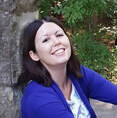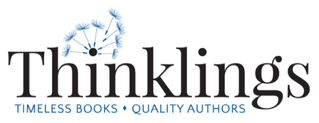|
Hello, Sarah Awa here again. You may know me as the bubbly social media lady, writer of werewolf novels, and purveyor of puns. My right brain LOVES those parts of my job! But my co-equal left brain needs its share of exercise too, which is why I also enjoy proofreading—getting to analyze and work with details. The concrete as well as the abstract. It’s rare that I’ll blog about a left-brain-related topic, but today I am. I’m going to talk grammar. For instance, how I look just like she did at my age. . . . If you couldn’t tell by now, this’ll be fun! Here we go: Although quality is our number-one priority, you won’t find pedants or grammar police at Thinklings. I’d much rather get lost in great stories than lurk in forums throwing asterisks everywhere like tiny shuriken* from the shadows. One of the most important lessons I’ve learned during the decade I’ve been proofreading and copy-editing is that flexibility is crucial, since language itself is always evolving. I’m not the final authority; neither is any other person. We all collaborate. Editing—rather, style—is largely about consistency, and there isn’t always only one right way. (Commas, I’m looking at you, you pesky, persnickety, punctilious punctuation.) There are, of course, concrete rules I obey: correcting spelling (in the case of variants, using the same one throughout), fixing typos, adding in missing words, etc. The professional standards you’d expect, allowing rare, artful rule-breakage.** If it’s not flying, it should be falling with style. Speaking of style, I use the Chicago Manual of it, and Merriam-Webster spellings. In case you’re wondering, the books Thinklings publishes come to us already quite clean and sparkly: fragrant little babies we could snuggle all day. We don’t expect a manuscript to be free of typos—our authors’ job is to write amazing stories, and we’ll wipe the last drops of spaghetti sauce out of the precious bundle’s hair (at no charge to the proud mom or dad). We always track our changes, and occasionally, authors persuade us away from our recommendations—see the second footnote for an example. I’ll conclude with a list of the top five errors I see even in high-quality manuscripts. So here’s a free mini-lesson to take your grammar from good to great! 1. Misspelling compound words. Microsoft Word doesn’t always catch these. You can use whichever dictionary you like, but keep spelling consistent throughout the document. Example: Is that germy thing a “doorknob,” “door-knob,” or “door knob”? (Not to be confused with “dork knob,” which I used to call my little brother.) Word likes all three. Webster has it the first way, no space or hyphen, and thus our books do as well. 2. Using “that” to refer to people, instead of “who” or “whom.” Incorrect: The people that bought up all the toilet paper must have crappy lives. Correct: The bums who wiped out the toilet paper supply said, “That’s how we roll.” 3. Misplaced modifiers. They’re nothing to sneeze at, and Word is not going to catch them. Incorrect: Waiting forever at the BMV to renew my license, the hand sanitizer pump got used about a hundred times. (The pump was not waiting forever to renew my license; I was. Well, not really, but it seemed like forever!) Correct: While I waited forever at the BMV to renew my license, the hand sanitizer pump got used about a hundred times. Even more correct/honest: Waiting forever at the BMV to renew my license, I used the hand sanitizer pump about a hundred times. (Don’t hide that OCD behind the passive voice!) 4. Overused words. Writers all have certain little words we just love to use! Two of mine are in the previous sentence. If you use them just a little, that’s fine. But if you use them more than just a little, your readers might catch on, and they might love your book just a little bit less. 5. Improperly using hyphens, en dashes, and em dashes. Hyphens join some compound words, we use them when a character stutters (“H-how are you?”), etc. Since I’m trying to keep this short and sweet, and I’ve got to dash soon, see this lovely article about the two types of dashes. I hope you’re safely at home reading this and laughing atop your T.P. mountain. Don’t forget to use any extra free time you might have right now to write, write, write, or read, read, read . . . a Thinklings book! ----------------------------- *Ninja throwing stars. See what I did there?? ("Shur I ken see it!") **Speaking of artful rule-breakage, only one character (so far) in a Thinklings novel is allowed to use comma splices; he's in our third book, a comedy. And it’s because I pity him so deeply. Haha. Actually, it was at the author’s request, and she has good reason. Are you dying of curiosity? The Disposable will be out soon!
As an Amazon Associate, we earn from qualifying purchases.
0 Comments
Your comment will be posted after it is approved.
Leave a Reply. |
Archives
July 2024
Categories
All
|
As an Amazon Associate, we earn from qualifying purchases.


 RSS Feed
RSS Feed
